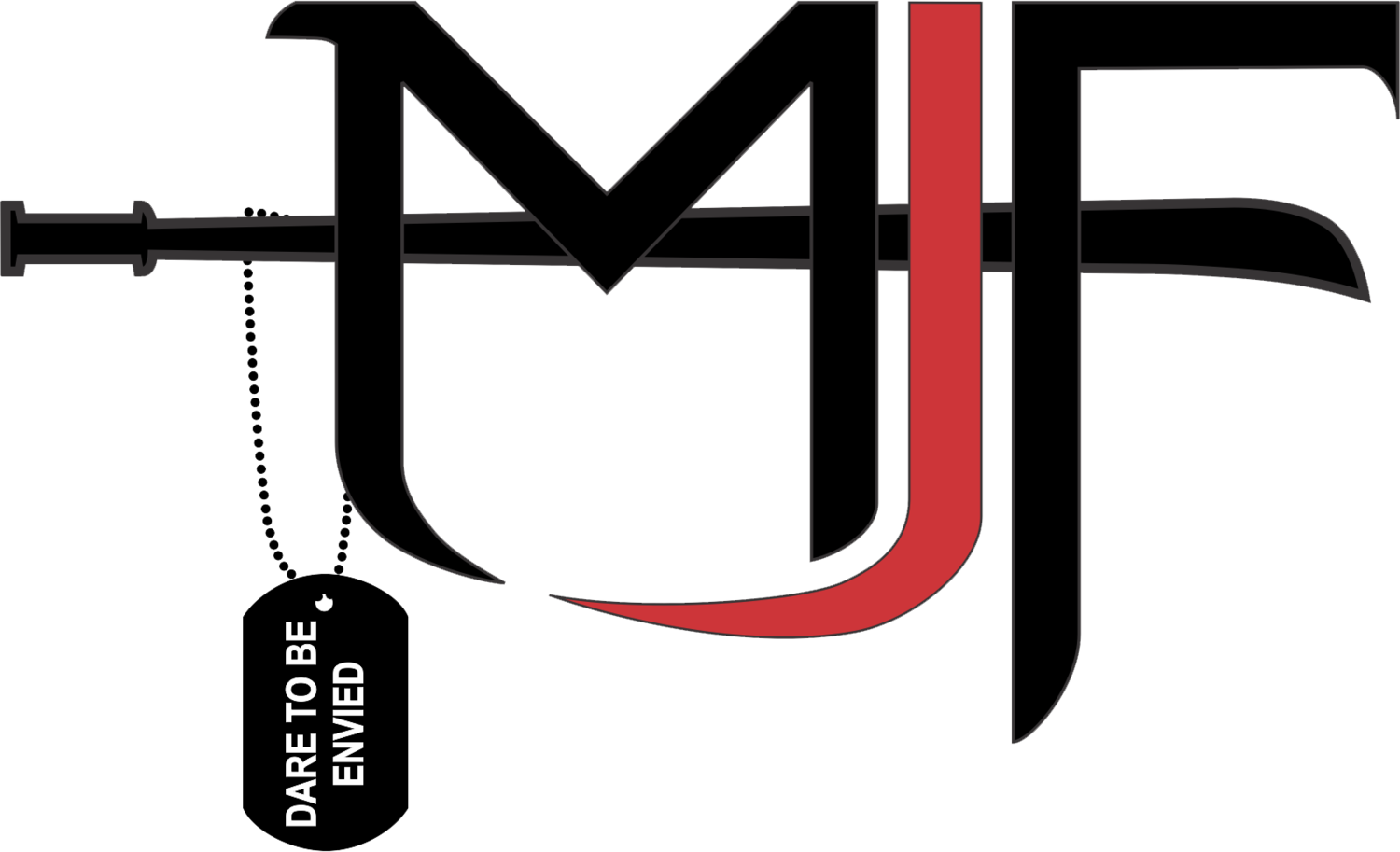Kids vitamins: What should my kid be taking?
Before, in my recent article we discussed parent's being a good example to your kids. Kids vitamins and nutrition is just as important or even more for proper health and development as your kid grows older.
A one size fits all approach does NOT work. You can't have the same gender, male or female go into a vitamin shop (GNC, Walgreens, Vitamin Shoppe) to name a few, and tell people to take a multi-vitamin. It doesn't work that way. We're all unique in our ethnic backgrounds, our dietary patterns, lifestyle, as well as medical conditions, and these elements MUST be approached when taking into account your micronutrient intake (vitamins and minerals.)
Kids vitamins: What is a micronutrient?
micronutrient
[mahy-kroh-noo-tree-uh nt, -nyoo-]
Word Origin
noun Biochemistry.
1. an essential nutrient, as a trace mineral or vitamin, that is required by an organism in minute amounts.
"Kids, like adults, are deficient in certain vitamins and minerals due to a number of contributing factors." (IDlife.com) 2018 Now that you know what a micronutrient is, let's take a look at a list of 24 of the most detrimental vitamins and minerals that your kids should adhere to - to promote THE BEST and healthy growth possible for your kid.
Kids vitamins: What do these vitamins & minerals do for your body?
- Vitamin A - is a fat-soluble vitamin that is naturally present in many foods. Vitamin A is important for normal vision, the immune system, and reproduction. Vitamin A also helps the heart, lungs, kidneys, and other organs work properly
- Vitamin C - also known as ascorbic acid, is a water-soluble nutrient found in some foods. In the body, it acts as an antioxidant, helping to protect cells from the damage caused by free radicals. Free radicals are compounds formed when our bodies convert the food we eat into energy.
- Vitamin D3 - (ergocalciferol-D2, cholecalciferol-D3, alfacalcidol) is a fat-soluble vitamin that helps your body absorb calcium and phosphorus. ... Vitamin D is used to treat and prevent bone disorders (such as rickets, osteomalacia). Vitamin D is made by the body when skin is exposed to sunlight
- Vitamin E - is a fat-soluble nutrient found in many foods. In the body, it acts as an antioxidant, helping to protect cells from the damage caused by free radicals. Free radicals are compounds formed when our bodies convert the food we eat into energy.
- Vitamin K1 - also called phylloquinone, is mostly found in plant foods like leafy green vegetables. It makes up about 75–90% of all vitamin K consumed by humans (2).
- Thiamin - an essential nutrient that all tissues of the body need to function properly. Thiamine was the first B vitamin that scientists discovered. ... Like the other B vitamins, thiamine is water-soluble and helps the body turn food into energy.
- Riboflavin - Vitamin B2 helps break down proteins, fats, and carbohydrates. It plays a vital role in maintaining the body's energy supply. Riboflavin helps convert carbohydrates into adenosine triphosphate (ATP). The human body produces ATP from food, and ATP produces energy as the body requires it.
- Niacin - has a wide range of uses in the body, helping functions in the digestive system, skin and nervous system. Niacin, a name coined from nicotinic acid vitamin, comes in several forms, including niacinamide (nicotinamide) and inositol hexanicotinate.
- Vitamin B6 - is also needed for proper brain development (in kids) and function (for people of all ages). It helps the bodymake the hormones serotonin (which regulates mood) and norepinephrine (which helps your body cope with stress)
- Folate - is a B-vitamin that is naturally present in many foods. A form of folate, calledfolic acid, is used in dietary supplements and fortified foods. Our bodies need folateto make DNA and other genetic material. Folate is also needed for the body's cells to divide.
- Glucosamine - The glucosamine in your body helps keep up the health of your cartilage -- the rubbery tissue that cushions bones at your joints. But as you get older, your levels of this compound begin to drop, which leads to the gradual breakdown of the joint.
- Vitamin B12 - is a nutrient that helps keep the body's nerve and blood cells healthy and helps make DNA, the genetic material in all cells. Vitamin B12 also helps prevent a type of anemia called megaloblastic anemia that makes people tired and weak. Two steps are required for the body to absorb vitamin B12 from food.
- Biotin - or vitamin H is part of the complex B vitamins. Along with helping the body metabolize fats and carbohydrates, biotin has been linked to improved hair health and maintaining proper function of the nervous system
- Pantothenic Acid - Vitamin B5, also called pantothenic acid, is one of the most important vitamins for human life. It's necessary for making blood cells, and it helps you convert the food you eat into energy. Vitamin B5 is one of eight B vitamins. All B vitamins help you convert the protein, carbohydrates, and fats you eat into energy.
- Calcium - is a mineral that is necessary for life. In addition to building bones and keeping them healthy,calcium enables our blood to clot, our muscles to contract, and our heart to beat. About 99% of the calcium in our bodies is in our bones and teeth.
- Iodine - is a mineral found in some foods. The body needs iodine to make thyroid hormones. These hormones control the body's metabolism and many other important functions. The body also needs thyroid hormones for proper bone and brain development during pregnancy and infancy
- Magnesium - is needed for more than 300 biochemical reactions in the body. It helps to maintain normal nerve and muscle function, supports a healthy immune system, keeps the heart beat steady, and helps bones remain strong. It also helps regulate blood glucose levels and aid in the production of energy and protein.
- Zinc - is found in cells throughout the body. It helps the immune system fight off invading bacteria and viruses.The body also needs zinc to make proteins and DNA,the genetic material in all cells. Zinc also helps wounds heal and is important for proper senses of taste and smell
- Selenium - is a nutrient that the body needs to stay healthy. Selenium is important for reproduction, thyroid gland function, DNA production, and protecting the body from damage caused by free radicals and from infection.
- Copper - is an essential nutrient for the body. Together with iron, it enables the body to form red blood cells. It helps maintain healthy bones, blood vessels, nerves, and immune function, and it contributes to iron absorption. Sufficient copper in the diet may help prevent cardiovascular disease and osteoporosis, too.
- Manganese - It aids in the formation of connective tissue, bones, blood-clotting factors, and sex hormones and plays a role in fat and carbohydrate metabolism, calcium absorption, and blood sugar regulation. Manganese is also necessary for normal brain and nerve function.
- Potassium - is a mineral (electrolyte) in the body. Almost 98% of potassium is found inside the cells. Muscles need potassium to contract. The heart muscle needs potassium to beat properly and regulate blood pressure.
- Myo-Inositol - Inositol is a vitamin-like substance. Inositol is commonly used orally for treating a disorder called metabolic syndrome and conditions associated with polycystic ovary syndrome (PCOS), including failure to ovulate, high blood pressure, high triglycerides, and high levels of testosterone.
- Choline - is an essential nutrient that is naturally present in some foods and available as a dietary supplement. In addition, choline is needed to produce acetylcholine, an important neurotransmitter for memory, mood, muscle control, and other brain and nervous system functions
Now that you have an idea of the importance of these vitamins and minerals
When picking the right kids vitamins for your kid, make sure to consider the following vitamins and minerals listed above, as well as making sure there aren't any harmful or artificial ingredients in the products. Below is a video of the suggested IDLIFE Kids vitamins (clinically proven to be the best for a healthy growing child.)
IDLIFE KIDS VITAMINS VIDEO (recommended)
The takeaway
As your kid grows older & mature you want to make sure they have the proper structure embedded in their DNA not only from a physical and mental standpoint, but from a lifestyle standpoint as well. You owe it to your kids to make sure they are given the right opportunity to succeed in life at any and everything you encourage them to do, and the most important factor in that process is making sure in the womb of pregnancy they are getting the nutritional value that they need as they continue to grow and flourish. We were all newborns at one point, so the question now is... Do you want your kids to model after you? The choice is yours!
People do as you do, not as you say. So, your kids will play into the same principle. If you're the type of parent that exercises daily, and eats nutritiously - CONTINUE to be a good example! If you're the type of parent that needs to change your ways and teach health to your kids, feel free to drop me an email, and we can talk about changing your direction for a better tomorrow.




